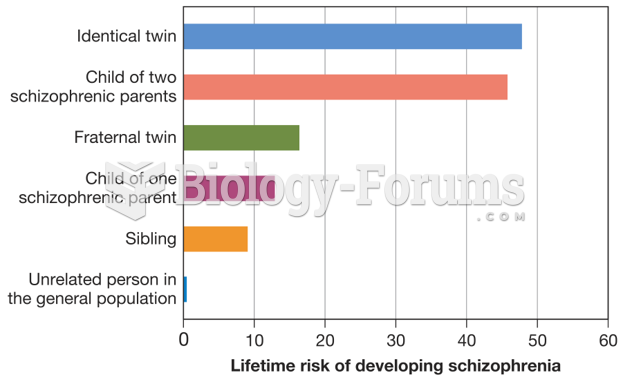|
|
|
Giardia is one of the most common intestinal parasites worldwide, and infects up to 20% of the world population, mostly in poorer countries with inadequate sanitation. Infections are most common in children, though chronic Giardia is more common in adults.
The heart is located in the center of the chest, with part of it tipped slightly so that it taps against the left side of the chest.
Pope Sylvester II tried to introduce Arabic numbers into Europe between the years 999 and 1003, but their use did not catch on for a few more centuries, and Roman numerals continued to be the primary number system.
The first oral chemotherapy drug for colon cancer was approved by FDA in 2001.
More than 2,500 barbiturates have been synthesized. At the height of their popularity, about 50 were marketed for human use.







